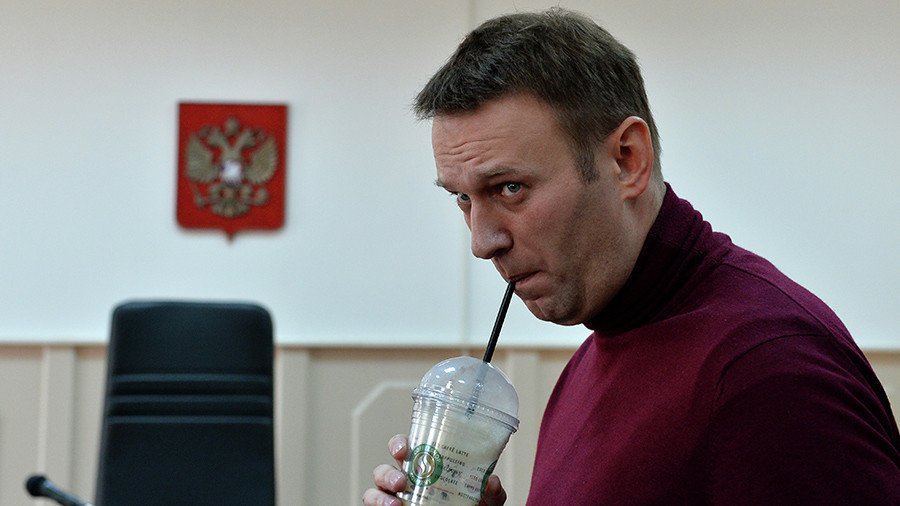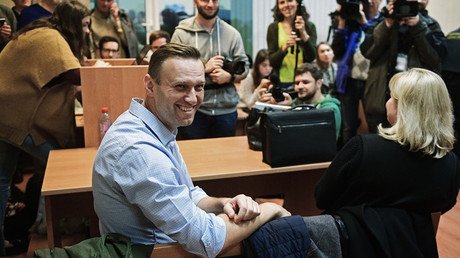Court orders Russian opposition activist Navalny to return presidential campaign funds to donor

A court in Moscow has ordered in favor of a man who demanded the return of money he donated to the presidential campaign of opposition activist Aleksey Navalny, after learning that the law forbids Navalny from participating in the 2018 race.
The Savyolovsky District Court in Moscow ordered the group that poses as “Navalny’s elections headquarters” and its head Leonid Volkov to return 50,100 rubles (about $860) to plaintiff Mikhail Kostenko and pay 1,703 rubles ($30) in court fees. In his lawsuit, Kostenko claimed he had donated the money to Navalny’s presidential campaign, but after the transfer was completed he learned that Russian law precludes the activist – or indeed any person with an uncompleted criminal sentence – from becoming a presidential candidate. Kostenko concluded that his payment should be considered “unlawful enrichment” and demanded its return.
Earlier, the head of the parliamentary majority party in the State Duma, MP Sergey Neverov (United Russia) has said that in his personal opinion Navalny’s fundraising activities could be described as embezzlement. “I think this is pure embezzlement… you are simply deceiving people when you collect money for a presidential campaign while the law forbids you to participate in elections. Your rights are limited because of your previous convictions,” he said at a meeting with the participants of the ‘School of Parliamentarism’ project. Neverov also noted that Navalny’s allies had collected some 140 million rubles (over $2.4 million) through this scheme.
The law ‘On Elections of the President of the Russian Federation’ reads that people convicted of crimes can participate in the presidential race only 10 years after their sentence expires or is officially recognized as served. In August this year, the Simonovsky District Court in Moscow satisfied the request filed by the Russian Justice Ministry and added one year to the five-year probation period in the sentence given to Navalny in late December 2014. The conviction was for his role in a $500,000 embezzlement scheme involving the international cosmetics company Yves Rocher.
Back then, Navalny’s attorney told reporters that his client’s suspended sentence was previously due to end on December 30, 2019. The meant that the prolonged probation period would end on December 30, 2020. In addition, Navalny is currently serving a five-year suspended term handed down in 2013 for a fraud scheme involving state-run timber company Kirovles.
Navalny has previously repeatedly said that the law should only apply to custodial sentences, not suspended ones. However, senior Russian officials, such as the head of the Central Elections Commission Ella Pamfilova, have dismissed these statements and said that Navalny had had no chance of entering the 2018 presidential race.













